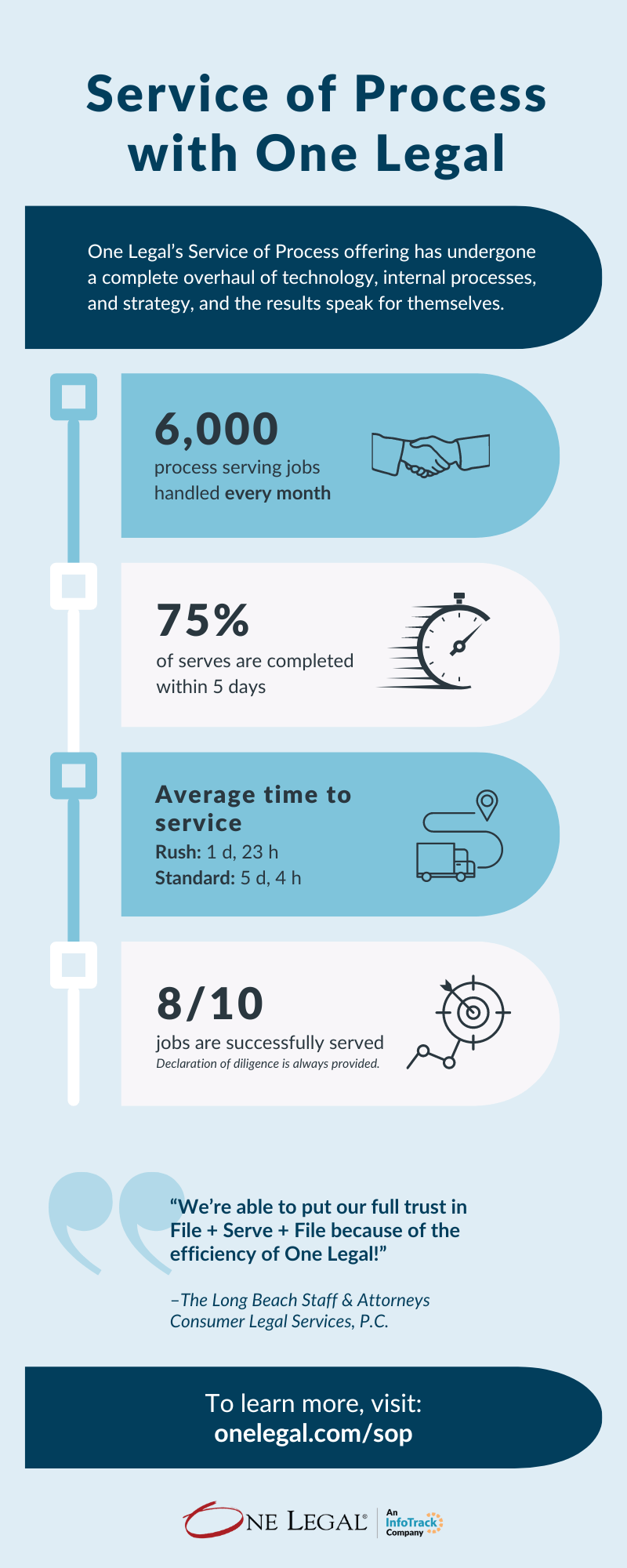Browsing the Process Offering Landscape in Legal Matters
The process serving landscape presents a complex interaction of lawful demands, difficulties, and best practices that require mindful navigation by legal professionals. As we explore the details of procedure serving, it becomes obvious that the ideal methods and resources can considerably impact the end result of lawful procedures, prompting a more detailed examination of what truly makes a procedure server effective.
Recognizing Refine Offering
Refine serving plays a critical duty in the lawful system, serving as the official system through which people are informed of lawful actions involving them. This crucial action guarantees that parties are notified of their rights and commitments under the law, promoting the due process of lawful procedures. Properly, process serving bridges the space in between the initiation of a suit and the succeeding judicial process, making certain that all parties get adequate notice.
The process serving treatment typically includes providing lawful documents, such as summonses and problems, directly to the people called in the documents. This direct delivery is vital, as it gives evidence that the parties have been properly notified, hence enabling them to prepare their cases. Process-server should adhere to certain methods, consisting of conformity with administrative laws, to guarantee that the service is thought about valid.
On top of that, the occupation needs a detailed understanding of the lawful landscape, along with solid social abilities to navigate potentially challenging situations. The effectiveness of process offering can significantly influence the development of legal matters, highlighting its significance in the overall legal structure.
Lawful Demands and Laws
Comprehending the legal requirements and policies governing process offering is crucial for making certain conformity and credibility in lawful process. Various jurisdictions establish specific rules that determine just how and when legal documents have to be offered. Generally, these regulations consist of guidelines on the kinds of papers that need service, the approaches whereby solution can be carried out, and the individuals accredited to execute this job.
In lots of jurisdictions, process-server need to follow stringent timelines, making certain that papers are supplied within a specific duration adhering to the initiation of a lawful activity. In addition, the approach of solution can vary; options might consist of personal solution, replaced solution, or service by mail, each with distinctive legal implications. It is critical to adhere to these techniques correctly to avoid potential hold-ups or dismissals of lawsuits.

Common Challenges in Process Serving
Many obstacles can develop throughout the process serving stage of legal proceedings, influencing the efficiency and effectiveness of supplying lawful records. This can lead to prolonged delays and enhanced expenses, complicating the timeline of lawful proceedings.
Another difficulty is making sure that service complies with administrative guidelines. Each jurisdiction has specific laws controling just how and when papers should be offered, and failure to follow these can result in the invalidation of the solution. In addition, the process-server should possess a comprehensive understanding of these policies to avoid missteps that could jeopardize the case.
Moreover, people may respond adversely upon being offered, resulting in potential conflicts or legal disagreements. This changability can present dangers to the process-server's safety and security and produce an emotionally charged atmosphere.
Last but not least, technological developments have actually presented new intricacies, such as the use of electronic interaction methods, positioning inquiries about the authenticity and approval of service via digital means. Attending to these difficulties is important for maintaining the stability and effectiveness of the legal process.
Best Practices for Effective Service
Efficient service of legal documents is vital to guaranteeing that lawful procedures move on without unneeded hold-ups. To achieve this, it is important to stick to finest techniques that enhance the efficiency and reliability of the service procedure.
First, recognizing the neighborhood regulations and laws regulating service of process is crucial. Each territory may have certain demands pertaining to the approach, timing, and individuals licensed to serve records. Familiarizing oneself with these laws can protect against potential legal difficulties.
Following, using a specialist process-server can dramatically improve the opportunities of successful solution. These specialists are trained in the subtleties of the law, in addition to in techniques for situating individuals who may be incredibly elusive.
Additionally, keeping comprehensive and clear documentation of the service procedure is vital. This consists of taping the date, time, and technique of solution, in addition to acquiring signatures when feasible. Such documentation offers as evidence of service, which can be crucial click in court.
Last but not least, timely solution is crucial (Process Serving). Without delay serving files reduces the risk of why not look here delays and ensures that all celebrations are notified and able to react as needed, thus promoting smoother legal process
Resources for Refine Offering Experts
Process offering specialists can greatly profit from a variety of sources developed to improve their efficiency and performance in the area. One crucial source is on-line databases that offer accessibility to public records, allowing process web servers to situate people swiftly. Tools such as Avoid Tracing software program can additionally greatly enhance the success price of serving records by exposing updated details regarding the topics.
Additionally, expert companies, such as the National Association of Expert Process-server (NAPPS), offer important training programs, accreditations, and networking opportunities. These organizations can help professionals stay notified regarding lawful updates and finest methods within the sector.
Moreover, innovation plays an essential duty in streamlining operations. Mobile applications for tracking solution attempts and handling client communications can improve workflow and enhance responsibility. Using automated scheduling tools can also make certain that target dates are fulfilled effectively.
Lawful research study platforms, such as Westlaw or LexisNexis, offer access to instance regulation and laws, which can be very useful for recognizing administrative needs. By leveraging these resources, procedure offering professionals can enhance their practice and add to the overall performance of the legal process.
Conclusion
Finally, browsing the process offering landscape necessitates a comprehensive understanding of legal needs and the capacity to deal with common challenges. Applying finest practices improves the performance of service distribution, while using offered sources can additionally sustain procedure offering professionals. Adherence to jurisdictional regulations and the tactical usage of innovation ultimately facilitate smoother lawful process, guaranteeing that all parties get proper notice of lawful actions. Continual improvement in these locations continues to be necessary for the integrity of the legal procedure.
The procedure offering landscape offers a complex interplay of legal demands, difficulties, and ideal techniques that require careful navigation by legal professionals.Process serving plays a vital duty in the lawful system, acting as the official mechanism through which individuals are notified of legal actions involving them.Understanding the legal requirements and regulations governing process serving check my source is important for guaranteeing compliance and credibility in legal proceedings. Legal practitioners and process web servers have to continue to be enlightened concerning the progressing landscape of regulations regulating process serving to safeguard the integrity of the lawful procedure.

Comments on “Why Timely and Reliable Process Serving Is Vital for Lawful Success”